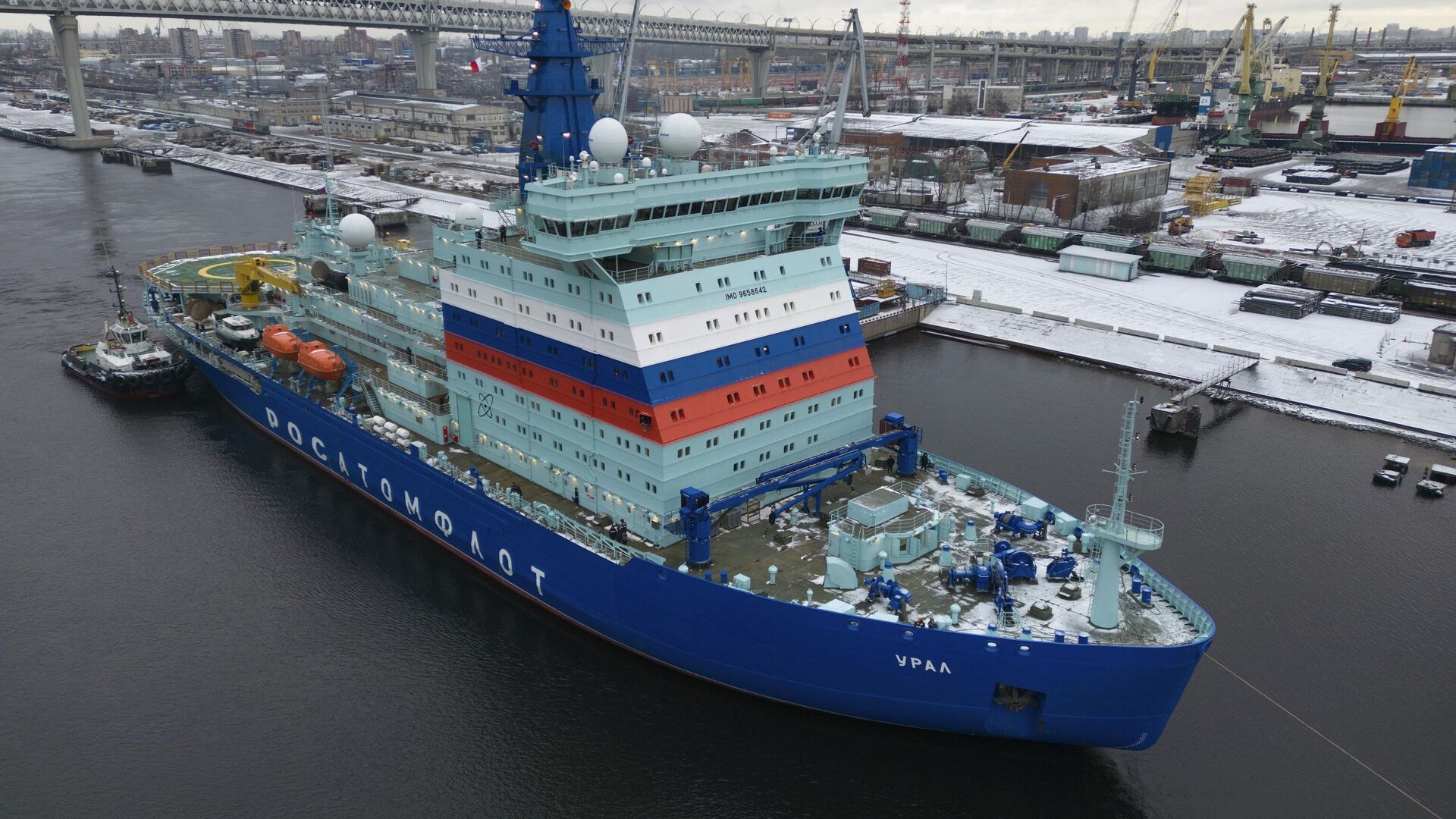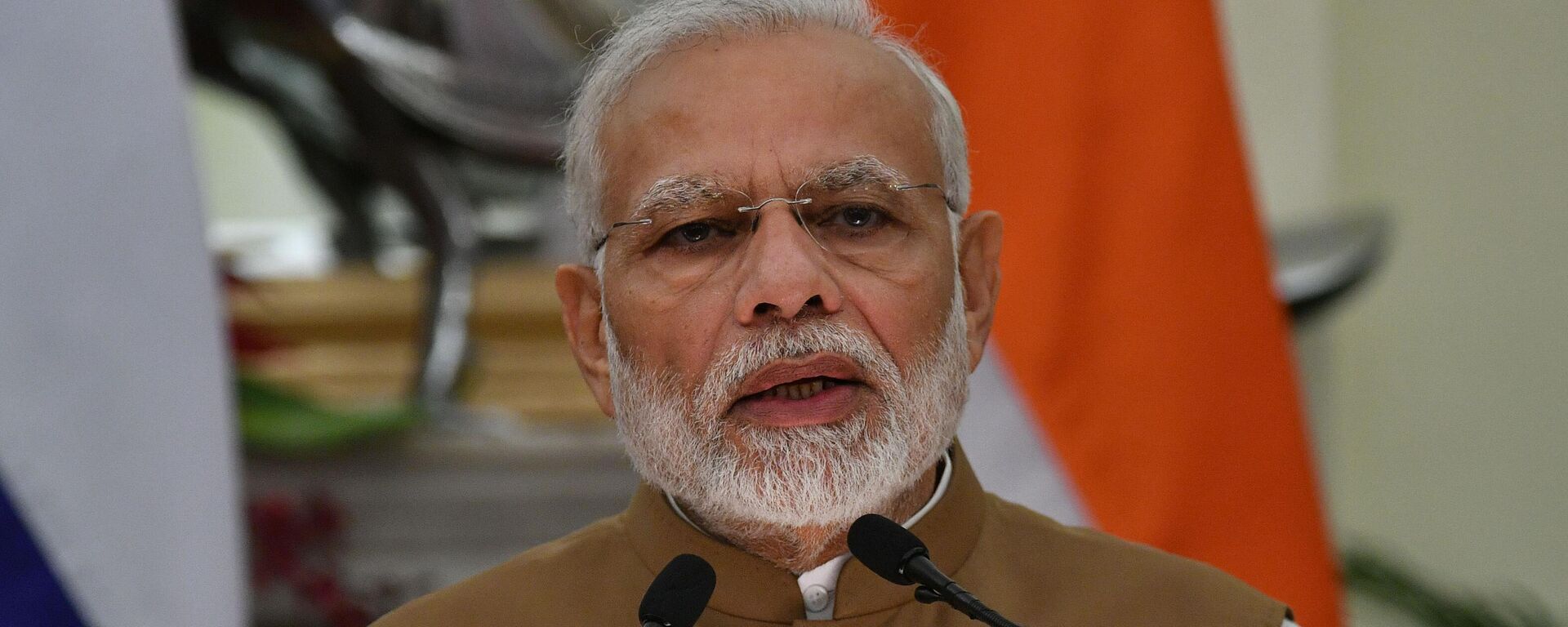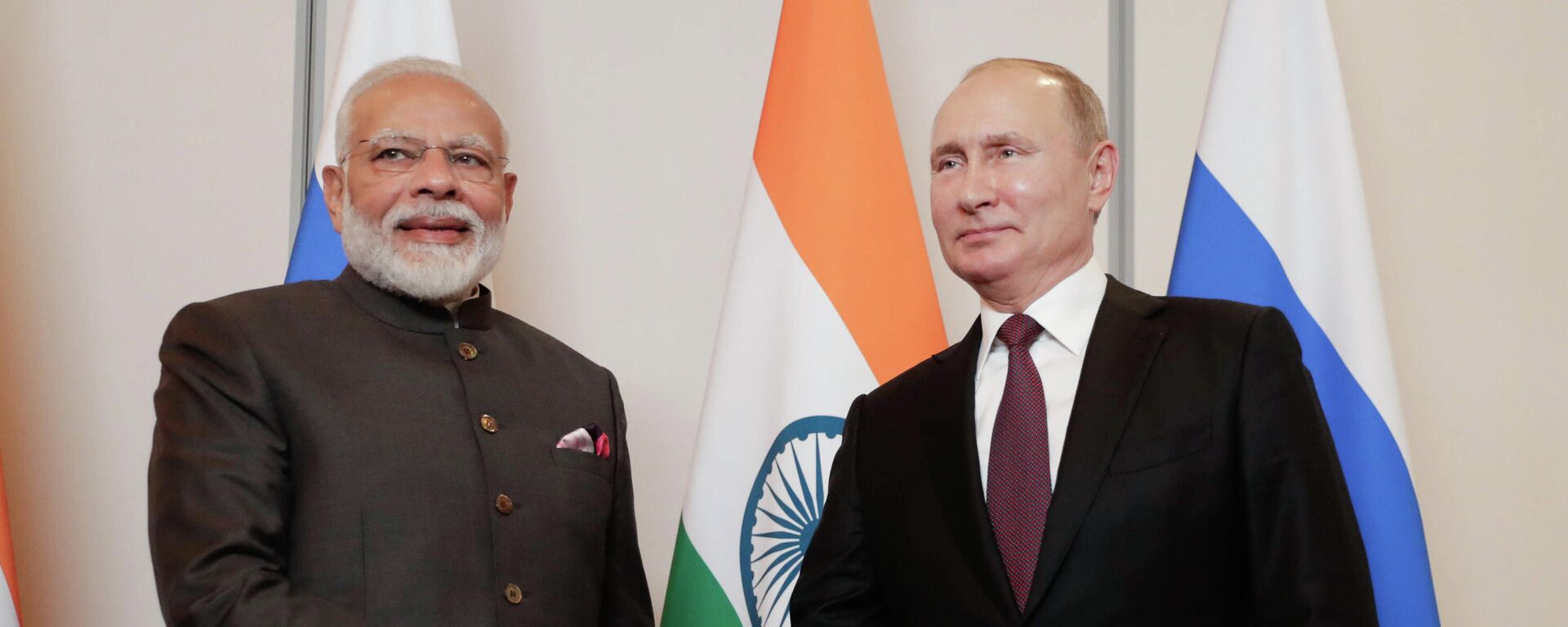Any Disruption of Russian Oil Supply is of 'Great Concern to India': Expert
20:31 26.06.2023 (Updated: 11:35 27.06.2023)

© AP Photo / Dmitri Lovetsky
Subscribe
Russia has emerged as a top supplier of crude to India this year, with New Delhi importing close to 800,000 barrels per day (bpd) from Moscow in May. Ratings agency Fitch has predicted that Russian oil exports to India could soon surge to one million barrels per day.
Any event or factor which may “disrupt” Russian oil supplies should be of “great concern to India," a leading global energy expert has told Sputnik.
Dr. Mamdouh G. Salameh, an international oil economist, underlined that Indian share prices reacted in a “typical knee-jerk reaction” to the developments in Russia over the weekend, as PMC Wagner Group boss Yevgeny Prigozhin mounted his aborted armed mutiny.
The ripple effects of Russia's internal political developments were felt on the global crude markets, with August Brent oil futures rising slightly by 0.18 percent to $74.14 a barrel at the start of trade on Monday. The August crude oil futures at the West Texas Intermediate (WTI) were up by 0.17 percent at $69.28 a barrel.
At India’s Multiple Commodity Exchange (MCX), both July and August crude oil futures rose by 0.44 and 0.39 percent respectively on account of the brief political tensions in Russia.
Salameh said that the reaction on the global markets was motivated by two factors.
“The first is concerns about a possible disruption of Russian crude oil supplies to India after a challenge by the Russian mercenary group Wagner on Moscow, which was eventually averted,” he said.
“The second is worry that this event would cause crude oil prices to rise leading to an adverse impact on India’s current account deficit since crude constitutes a significant share of the country's import bill,” Salameh outlined.
“The second is worry that this event would cause crude oil prices to rise leading to an adverse impact on India’s current account deficit since crude constitutes a significant share of the country's import bill,” Salameh outlined.
However, the energy expert underscored that the recent events in Russia would have no “adverse impact” on Russian energy exports.
“The situation in Russia under the leadership of President Putin and on the front with Ukraine is solid and stable,” he said.
India’s Dependence on Russia Crude Growing at an ‘Exponential Rate’
New Delhi says importing crude from Moscow is part of its “inflation management” strategy amid global volatility in prices since last year.
In India’s context, Salameh noted that New Delhi was meeting almost half of its overall crude requirements with supplies from Moscow, which has overtaken India’s traditional energy suppliers such as Saudi Arabia and Iraq.
“India’s dependence on Russian crude is growing at an exponential rate and is becoming highly beneficial to the Indian economy… That is why any events or factors that may disrupt Russian oil supplies are of great concern to India,” Salameh underlined.
He noted that not only was Russia reportedly offering India a “small discount” on the crude price as compared to the global price, but Moscow has also presented India with the option of paying for crude exports in Indian Rupees (INR).
Oil Prices Will Continue to be ‘Under Pressure’
Salameh forecast that oil prices would continue to remain “under pressure” in the foreseeable future because of the “shaky” American banking system and fears of interest rate hikes by the US Federal Bank.
He said that a Feds interest rate hike could lead to the collapse of one or more commercial banks and trigger a “global banking financial crisis” which could resemble the 2008 subprime mortgage financial crisis, which spurred the global financial crisis (GFC).
“Western disinformation is trying to shift the blame for the weakness in oil prices to a so-called slowdown in China’s economy rather than the US banking difficulties,” Salameh said.
The expert said that China’s economy remained “solid”.
“It is continuing to grow, having already grown by 4.5 percent in the first quarter of 2023 at 4-5 times the rate of growth of both the United States’ and the EU’s economies. It is projected to grow by 5.2-6.5 percent this year,” Salameh said.



